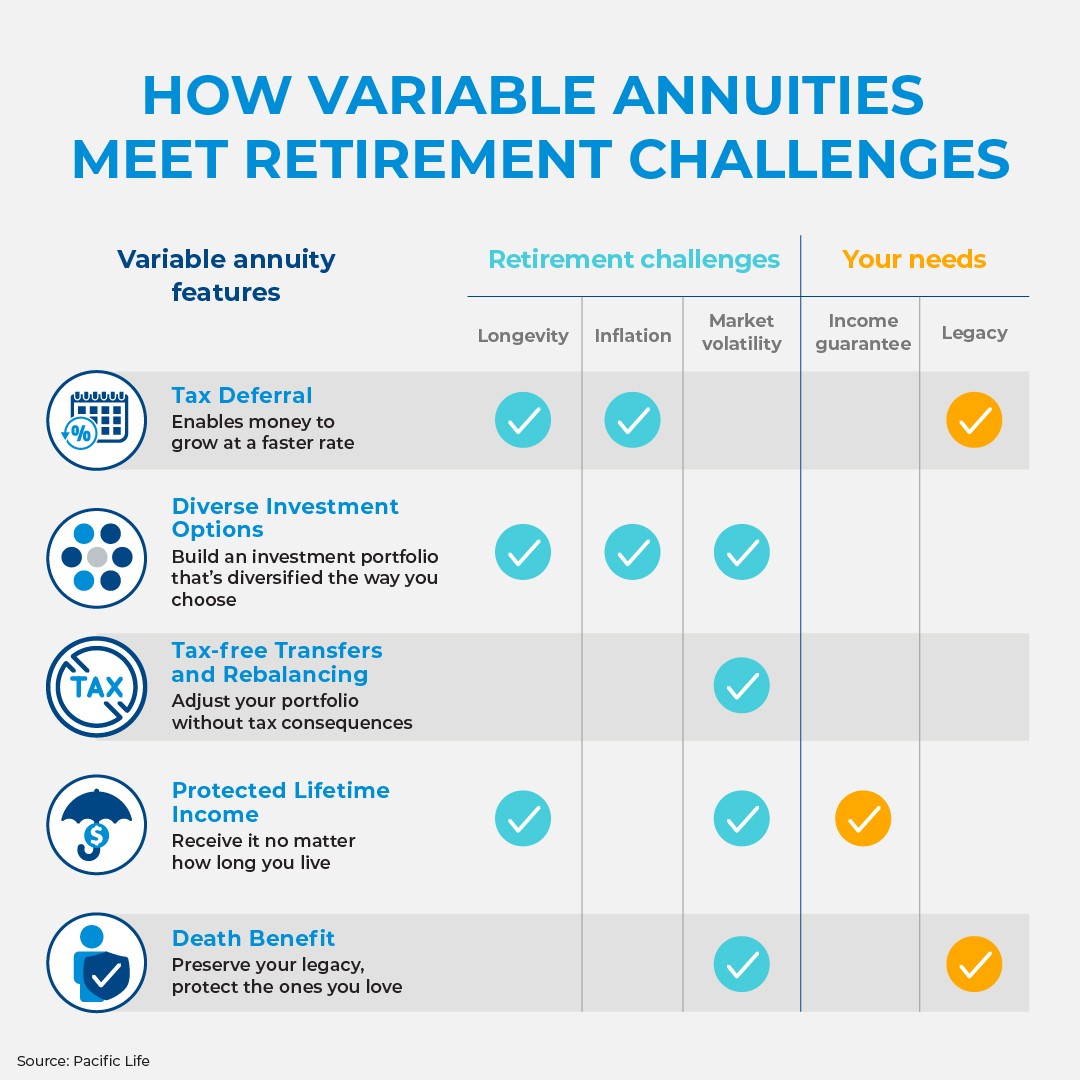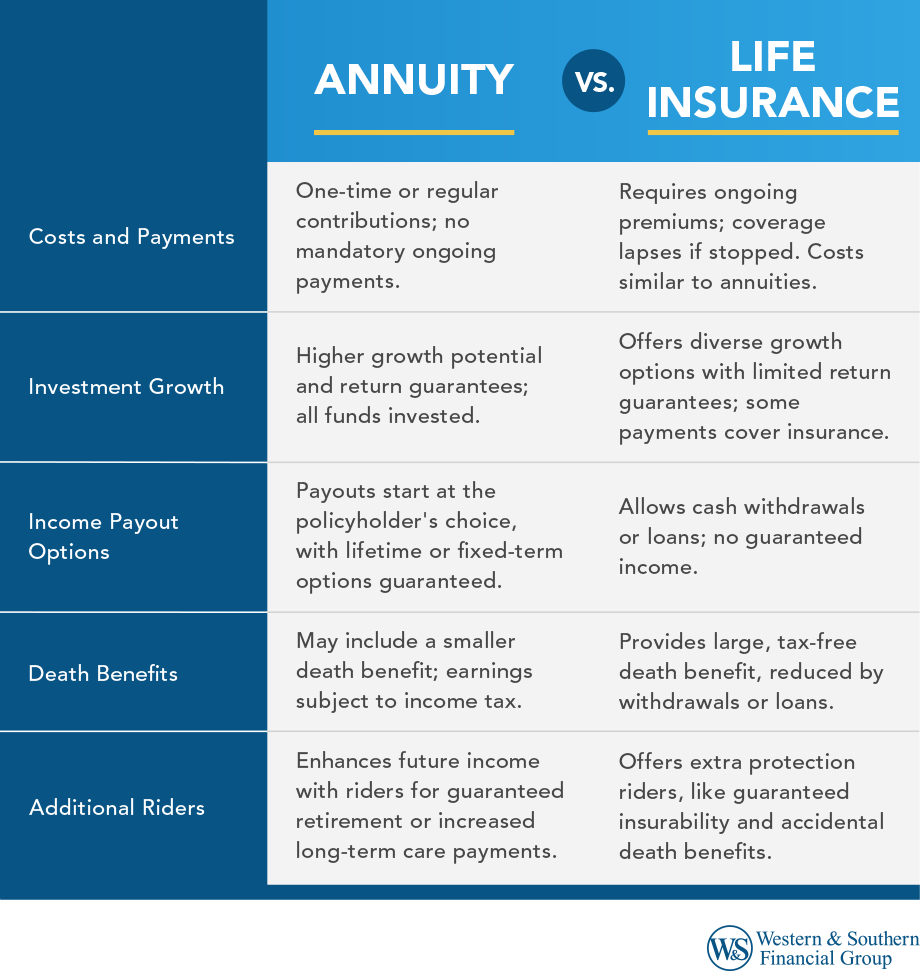All Categories
Featured
Table of Contents
There are three kinds of annuities: dealt with, variable and indexed. With a fixed annuity, the insurance firm assures both the price of return (the rate of interest) and the payout to the investor. The rate of interest on a fixed annuity can change in time. Typically the rate of interest is repaired for a number of years and then adjustments periodically based upon current prices.
With a deferred set annuity, the insurer accepts pay you no less than a defined interest rate during the time that your account is expanding. With a prompt fixed annuityor when you "annuitize" your delayed annuityyou receive a predetermined fixed amount of cash, generally on a monthly basis (comparable to a pension plan).
And, unlike a fixed annuity, variable annuities don't give any type of assurance that you'll make a return on your investment. Rather, there's a danger that you can in fact lose cash.
Analyzing Strategic Retirement Planning Key Insights on Your Financial Future What Is the Best Retirement Option? Pros and Cons of Fixed Income Annuity Vs Variable Growth Annuity Why Choosing the Right Financial Strategy Is Worth Considering What Is A Variable Annuity Vs A Fixed Annuity: How It Works Key Differences Between Different Financial Strategies Understanding the Key Features of Variable Vs Fixed Annuities Who Should Consider Strategic Financial Planning? Tips for Choosing Fixed Income Annuity Vs Variable Annuity FAQs About Planning Your Financial Future Common Mistakes to Avoid When Planning Your Retirement Financial Planning Simplified: Understanding Fixed Income Annuity Vs Variable Growth Annuity A Beginner’s Guide to Indexed Annuity Vs Fixed Annuity A Closer Look at How to Build a Retirement Plan
Due to the intricacy of variable annuities, they're a leading source of investor grievances to FINRA. Prior to buying a variable annuity, thoroughly reviewed the annuity's program, and ask the individual offering the annuity to clarify all of the item's functions, bikers, expenses and constraints. Indexed annuities typically provide a minimum surefire interest price incorporated with an interest rate linked to a market index.
Comprehending the attributes of an indexed annuity can be complicated. There are a number of indexing techniques companies utilize to compute gains and, as a result of the selection and complexity of the approaches used to credit interest, it's challenging to contrast one indexed annuity to an additional. Indexed annuities are generally categorized as one of the complying with 2 kinds: EIAs use an assured minimum interest rate (usually a minimum of 87.5 percent of the premium paid at 1 to 3 percent interest), along with an added rate of interest connected to the performance of one or even more market index.

With variable annuities, you can invest in a range of securities including stock and bond funds. Stock market performance establishes the annuity's value and the return you will certainly get from the money you spend.
Comfortable with fluctuations in the stock exchange and desire your financial investments to equal rising cost of living over an extended period of time. Youthful and intend to prepare economically for retired life by gaining the gains in the stock or bond market over the long-term.
As you're developing your retirement savings, there are lots of ways to extend your cash. can be especially useful financial savings tools because they guarantee a revenue amount for either a set amount of time or for the remainder of your life. Dealt with and variable annuities are 2 options that supply tax-deferred growth on your contributionsthough they do it in various ways.
Exploring the Basics of Retirement Options Key Insights on Fixed Vs Variable Annuities Breaking Down the Basics of Investment Plans Advantages and Disadvantages of Fixed Vs Variable Annuity Why Annuity Fixed Vs Variable Can Impact Your Future How to Compare Different Investment Plans: Simplified Key Differences Between Immediate Fixed Annuity Vs Variable Annuity Understanding the Rewards of What Is Variable Annuity Vs Fixed Annuity Who Should Consider Strategic Financial Planning? Tips for Choosing Variable Annuity Vs Fixed Annuity FAQs About Immediate Fixed Annuity Vs Variable Annuity Common Mistakes to Avoid When Choosing a Financial Strategy Financial Planning Simplified: Understanding Variable Annuity Vs Fixed Annuity A Beginner’s Guide to Variable Annuities Vs Fixed Annuities A Closer Look at How to Build a Retirement Plan
An offers a surefire passion price. Your contract worth will certainly enhance due to the amassing of guaranteed passion profits, implying it will not lose value if the market experiences losses.
A consists of invested in the stock exchange. Your variable annuity's financial investment efficiency will affect the size of your savings. It may guarantee you'll obtain a collection of payouts that start when you retire and can last the remainder of your life, provided you annuitize (begin taking repayments). When you start taking annuity settlements, they will rely on the annuity value back then.
Market losses likely will cause smaller sized payouts. Any kind of interest or various other gains in either kind of agreement are protected from current-year tax; your tax liability will certainly come when withdrawals start. Allow's look at the core features of these annuities so you can decide just how one or both may fit with your general retirement strategy.

A set annuity's value will not decline because of market lossesit's regular and steady. On the various other hand, variable annuity worths will vary with the efficiency of the subaccounts you elect as the marketplaces climb and fall. Earnings on your repaired annuity will highly depend upon its gotten price when acquired.
Conversely, payout on a taken care of annuity purchased when rate of interest prices are low are more probable to pay incomes at a reduced price. If the rate of interest is ensured for the size of the contract, earnings will continue to be consistent despite the markets or price task. A set rate does not indicate that dealt with annuities are risk-free.
While you can not land on a set price with a variable annuity, you can pick to purchase traditional or aggressive funds tailored to your danger degree. A lot more conservative financial investment choices, such as temporary bond funds, can help in reducing volatility in your account. Considering that dealt with annuities supply an established price, dependent upon current interest rates, they don't offer that very same versatility.
Analyzing Strategic Retirement Planning A Comprehensive Guide to Fixed Vs Variable Annuities Breaking Down the Basics of Annuities Fixed Vs Variable Features of Retirement Income Fixed Vs Variable Annuity Why Choosing the Right Financial Strategy Is Worth Considering Fixed Income Annuity Vs Variable Growth Annuity: Simplified Key Differences Between Fixed Interest Annuity Vs Variable Investment Annuity Understanding the Rewards of Fixed Vs Variable Annuity Pros And Cons Who Should Consider Variable Annuity Vs Fixed Indexed Annuity? Tips for Choosing Fixed Vs Variable Annuity Pros And Cons FAQs About Planning Your Financial Future Common Mistakes to Avoid When Planning Your Retirement Financial Planning Simplified: Understanding Your Options A Beginner’s Guide to Fixed Annuity Vs Variable Annuity A Closer Look at Fixed Annuity Vs Variable Annuity

You potentially could earn more lengthy term by taking added risk with a variable annuity, but you might likewise shed money. While dealt with annuity contracts prevent market risk, their compromise is less development potential.
Spending your variable annuity in equity funds will certainly give even more possible for gains. The charges connected with variable annuities may be higher than for various other annuities.
The insurance coverage company might enforce abandonment charges, and the Internal revenue service might impose a very early withdrawal tax charge. They begin at a particular percent and then decrease over time.
Annuity revenues are subject to a 10% early withdrawal tax obligation penalty if taken prior to you get to age 59 unless an exemption uses. This is enforced by the internal revenue service and puts on all annuities. Both dealt with and variable annuities provide alternatives for annuitizing your balance and transforming it right into a guaranteed stream of life time revenue.
Exploring the Basics of Retirement Options Everything You Need to Know About Financial Strategies What Is the Best Retirement Option? Benefits of Fixed Income Annuity Vs Variable Annuity Why Variable Annuity Vs Fixed Annuity Matters for Retirement Planning How to Compare Different Investment Plans: A Complete Overview Key Differences Between Different Financial Strategies Understanding the Risks of Indexed Annuity Vs Fixed Annuity Who Should Consider Strategic Financial Planning? Tips for Choosing the Best Investment Strategy FAQs About Planning Your Financial Future Common Mistakes to Avoid When Choosing Variable Vs Fixed Annuities Financial Planning Simplified: Understanding Variable Annuity Vs Fixed Annuity A Beginner’s Guide to Smart Investment Decisions A Closer Look at Annuities Variable Vs Fixed
You might determine to utilize both fixed and variable annuities. Yet if you're choosing one over the various other, the differences matter: A may be a better choice than a variable annuity if you have an extra conventional threat resistance and you seek predictable rate of interest and major security. A might be a much better choice if you have a greater threat resistance and desire the capacity for long-lasting market-based development.
There are different kinds of annuities that are created to serve various functions. A fixed annuity guarantees payment of a set quantity for the term of the agreement.
A variable annuity changes based on the returns on the mutual funds it is bought. Its worth can go up or down. An immediate annuity begins paying out as quickly as the customer makes a lump-sum settlement to the insurer. A deferred annuity begins settlements on a future date set by the buyer.
An annuity that provides surefire income permanently (or past, for your recipient) Assures you that also if you deplete their other assets, you will still have some income coming in. Annuities' returns can be either taken care of or variable. Each kind has its advantages and disadvantages. With a dealt with annuity, the insurer guarantees the buyer a particular repayment at some future date.
Table of Contents
Latest Posts
Analyzing Strategic Retirement Planning A Comprehensive Guide to Investment Choices Breaking Down the Basics of Variable Annuity Vs Fixed Indexed Annuity Benefits of What Is A Variable Annuity Vs A Fi
Analyzing Strategic Retirement Planning A Comprehensive Guide to Variable Annuity Vs Fixed Indexed Annuity Defining Indexed Annuity Vs Fixed Annuity Benefits of Fixed Vs Variable Annuity Pros And Cons
Decoding How Investment Plans Work A Comprehensive Guide to Investment Choices Breaking Down the Basics of Variable Annuity Vs Fixed Indexed Annuity Features of Fixed Annuity Vs Equity-linked Variable
More
Latest Posts